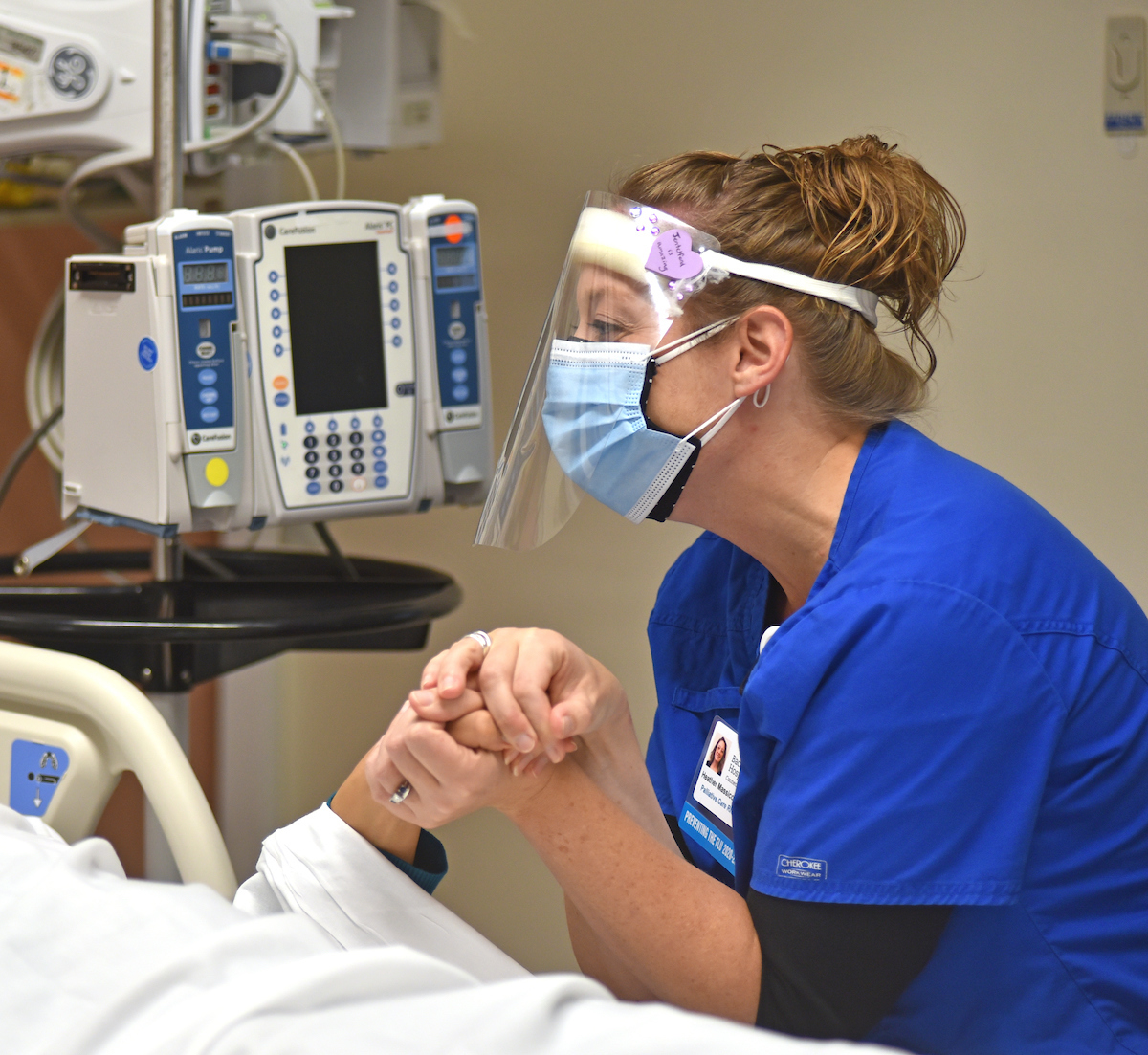<< Back
What is a Palliative Nurse’s Role in a Patient’s Care?

October 26, 2020
Heather Massicotte helps patients and their families make decisions during difficult times.
Massicotte is the first palliative care nurse navigator for Hartford HealthCare’s East Region, which includes Backus (Norwich) and Windham hospitals. She started the job in February.
With a long background in hospice and palliative care nursing, Massicotte brings practical experience to the new position. And her thesis for her master’s degree involved developing a prototype for this exact program.
“I work with the social worker and the nurse practitioner,” Massicotte said, “to provide an extra level of support to patients. The nurse practitioner provides symptom management, and the social worker covers the psycho-social elements. I’m the glue that holds it all together.”
By definition, palliative care is specialized medical care for people living with a serious or chronic illness, ranging from cancer to COPD to dementia to heart failure. The nurse navigator’s job is to meet the patient during his or her hospital stay, make the connection and build a relationship, and then stay in touch after discharge.
An important part of the job is to talk with the patient and family about their “goals of care.”
“It’s important for patients and families to define how they want to proceed,” Massicotte said. “As an illness progresses, patients and their families do better when they know what to expect, and talking through how they want to be cared for as things get worse is imperative.
“Patients’ plans for treatment or care can be changed based on values and preferences over time, and a key component of good patient care is an ongoing and evolving conversation about the medical facts and options for care with a trusted professional.”
When asked how the first six months of having a palliative nurse navigator at both Backus and Windham hospitals, palliative care nurse practitioner Jennifer Telford offered a “woot-woot!”
“We can’t say enough good things,” Telford said. “Heather is able to identify the patients who can benefit from our service, and then she keeps track of them when they go back into the community, or if they come back to the hospital. She helps identify the support systems, and works with us to identify the decisions for future care.”
Suzanne Smith, the palliative care program coordinator, said having Heather as part of the team is “invaluable. In addition to her other skills, she is an astute clinician. She speaks plainly to the patients and their families, helping them to understand their situation.”
A patient with a chronic or progressive illness sometimes can’t see the forest for the trees. Massicotte said that’s where she comes in.
“For them, she said, “it can be testing, results, information, treatment. I see the big picture. I see how it all affects them, the family. I work to relieve that burden of information while supporting them through treatment. The patients feel supported and so does the medical team as they work to fulfill the goals of care for their patients.”
While analytics are still in the early stages, Massicotte said based on her experience, with the inclusion of a palliative care service as part of the care team, she expects to see better patient outcomes, fewer readmissions to the hospital, and an overall better patient experience.